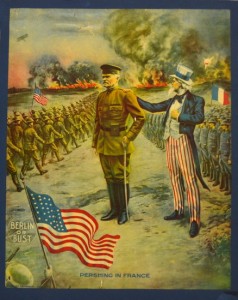At some time in our lives, we all need to be told we’re good or shown the way. A simple story about giving kids from Oakland’s toughest neighborhoods a chance to rise above the violence in their communities strangely touched me and compelled me to write. As I do this, I am not that far from Oakland. I have heard enough to tell you that the culture of violence described is not exaggerated. Patients who see me for marijuana permission are happy and delighted they do not have to drive there.
So there are children who grow up in a culture of violence. I see adults. Not too long ago, I was seeing adults for social security evaluations in Los Angeles. Many of them had been caught in crossfire, perhaps shot on their way to the supermarket or even in front of their own homes. They told me they did not know why or by whom, and sometimes they still had bullets in them somewhere. Other times it was just a memory that so overwhelmed them that the quality of their post-traumatic stress disorder was like the sort of thing that you see in Vietnam veterans. Read more on It Takes So Little…
Filed under Family, Government, News, PTSD, Violence by on Jan 25th, 2013. Comment. ![]()
 Turns out, while most veterans appreciate a stranger saying “thank you” for their service, it can also be a bit uncomfortable. I wonder how these same guys feel about the “Have you thanked a veteran today?” bumper stickers.
Turns out, while most veterans appreciate a stranger saying “thank you” for their service, it can also be a bit uncomfortable. I wonder how these same guys feel about the “Have you thanked a veteran today?” bumper stickers.
I’ve been thanking veterans for a long time. Sometimes, not as consistently as I’d like to because this doctor gig really means that I have to remember a large number of things. Since I began working in the medical marijuana field, where the veterans I meet are paying for a
Filed under military by on Dec 28th, 2012. Comment. ![]()
Army veteran Galmiche, who served his country for 20 years, was diagnosed with post-traumatic stress disorder in 2002. He says he worked with a counselor and took medication for years, but did not find relief from his symptoms until he was matched with a PTSD service dog.
The first time I met a patient with a service dog was when I was doing social security examinations, as a psychiatrist. The woman was about 60 years old, motherly and white-haired, and she told me that she was nervous about the interview and was being treated for an anxiety disorder. She did not think she could “make it” unless I saw her with her “service dog.” Many years before, when my allergy to dog-hair was in flower, I would have declined. I had since treated it effectively with alternative methods, so I told her we could try it. It was a tiny dog, the kind my husband would call a “barfy” dog. The dog had the cutest little blue coat with very official looking embroidery — including the wheelchair picture that is usually used to mark places that are reserved for such vehicles. The little dog wouldn’t stop staring at me. I did a customary and very basic psychiatric interview. I started with questions that involved little or no stress, like name and diagnosis. Eventually, I ramped up to questions about the topics that generated anxiety, such as past traumas. The pooch stood on its hind legs while she rubbed it vigorously, staring at me. I stared back. Read more on Service Dogs for PTSD Veterans…
Filed under Mental Illness, military, News, PTSD, Service animals by on Nov 15th, 2012. Comment. ![]()
In the National World War II museum, it is easy and even triumphant and pride-generating to look back and see some of the scientific advances made during World War II. There’s no doubt that science is advancing. But I wonder if our ethics can keep pace.
I am fairly proud of Teflon. And synthetic cortisone is widely used and may have saved plenty of lives. It’s a steroid that knocks down the action of the immune system. When a medical substance becomes cheaper and easier to use and known to the public, then it runs a real danger of getting overused. Most concern about overuse is focused on illegal steroids taken by athletes. Nevertheless, everything that can be helpful and fast may make things worse. One example would be the over-prescribing of steroids to kids with allergies.
Penicillin had been invented before WWII, but its use did not become widespread until WWII. Of course, it took people awhile to find out about the ability of bacteria to develop resistances to antibiotics. This has led to newer and stronger antibiotics, which would not be the worst thing in the world. Unfortunately, the excessive use of antibiotics has led to untreatable infections, such as methicilline-resistant strep and an untreatable strain of tuberculosis. Read more on Science and War (and Ethics)…
Filed under medicine, News, prescription drugs, Research, Science by on Oct 14th, 2012. Comment. ![]()
Dr. Alycia A Chambers is one of my new heroes. An investigation in 1998 led her to suggest that Penn State assistant football coach Jerry Sandusky met the criteria for pedophile, in her own assessment of the person now identified as “victim #6.”
What is at stake here is not the usual legal case of “my expert vs. your expert,” for only the most jaded of lawyers would suggest that this case be deferred to the adversarial system, letting the truth fall where it may.
Sexual abuses of childhood trust generally lead to post traumatic stress disorder (PTSD), which can affect the conduct of an entire life if untreated. They are all too often untreated.
Dr. Chambers’ report was buried for a long time. Part of this could have been because she was female. It is not powerful anymore to talk about sex discrimination and harder to prove it, but I have no trouble believing the opinion of a professional female was buried in the files. Read more on Penn State Coach Scandal Update…
Filed under abuse, Sexual Misconduct, Sports by on Jul 25th, 2012. Comment. ![]()
I am a veteran.
Military. American. U.S. Army. Medical Corps.
This is truth.
Along with being a fairly knowledgeable physician with over 30 years experience, it still seems incredible and unbelievable to at least some of my patients. It is not in their experience to know women who appear on the surface to be feminine and attractive who have been in the military. Admittedly, these things were never brought up until I lost a massive amount of weight (half my body weight) but there they are.
Every time I get a chance, I thank a veteran with a handshake for defending – in these very words — “this great nation.” This seems to be a custom that has crested, for I have not met anyone else who does this lately.
Even though I tell people I am a veteran, too, almost nobody thanks me back.
Read more on This Memorial Day, Thank The Live Veterans And Honor The Dead…
Filed under Holidays by on May 26th, 2012. Comment. ![]()
I accidentally watched Dr. Drew Pinsky’s “Life Changers” and it put me in a state of utter stupefaction.
That was fortunate, as I found myself unable to destroy the television. Doubly fortunate, in that this was a hotel-room TV and the bill would have been padded for replacing the set.
Okay, so I was in a hotel flipping channels during the day. I do this once in a while to see what is being communicated to the TV-watching public, especially about health.
Dr. Oz has a show. His guest was Rachel Ray showing how to fix things you might screw up in the kitchen. Common sense fixes with repartee. I did not see this as a health problem and I did not make it to the end of the show. Read more on Dr. Drew Pinsky’s “Life Changers”…
Filed under Psychiatrists, PTSD by on May 23rd, 2012. Comment. ![]()
I have seen more than I can count of them, veterans with chronic pain symptoms. Nobody who serves our nation should be left to suffer.
In my world – nobody at all should be left to suffer.
I’ve worked in the Veterans Affairs system in many cities in several states and in various positions. I’ve been the doctor who sits in the office and sees them one by one, diagnosing them and prescribing treatment. I’ve been the evaluator who examines them and decides what kind of pension or how much disability they get. I’ve been the director of day treatment centers where we try to give these noble servants of the people everything from activities to fill up their days, to continuing therapy for problems such as PTSD, and even food and shelter. Read more on How To Help A Veteran In Pain…
Filed under News by on Feb 6th, 2012. Comment. ![]()
I get blazing mad whenever one of those knee-jerk “patriots” cry, “You don’t support our troops!” if anyone should criticize the military, our government’s foreign policy or any specific wars, invasions or other actions we’ve taken in this brave new millennium.
I was in the peacetime United States Army. Since my honorable discharge, I’ve served several Veteran’s Administration medical facilities in several states, and in private practice, I’ve made a special study of the treatment of Post Traumatic Stress Disorder – which the military routinely denies even exists and doesn’t even try to treat in many VA facilities.
Yes, I was in the Army, and No – I wasn’t in combat. Nevertheless, with the idea of war always hanging over my shoulder, my life was different. I never really understood the “grunts” — the infantry without appreciable rank — who wanted nothing more than to see “action.” Read more on Can’t We All Just Get Along?…
Filed under Uncategorized by on Oct 12th, 2011. Comment. ![]()
